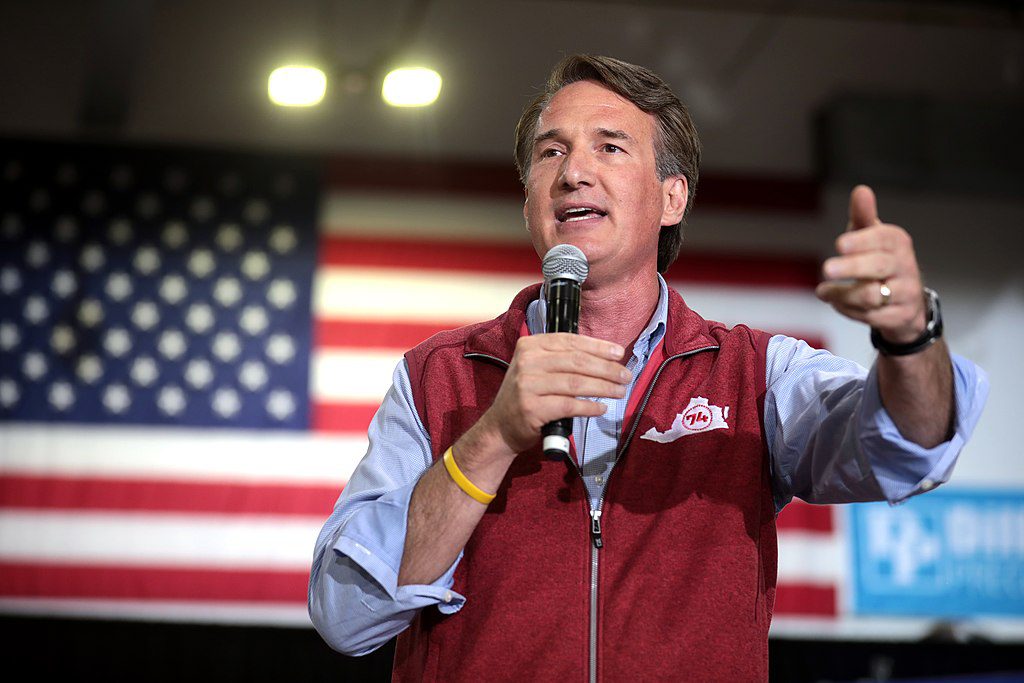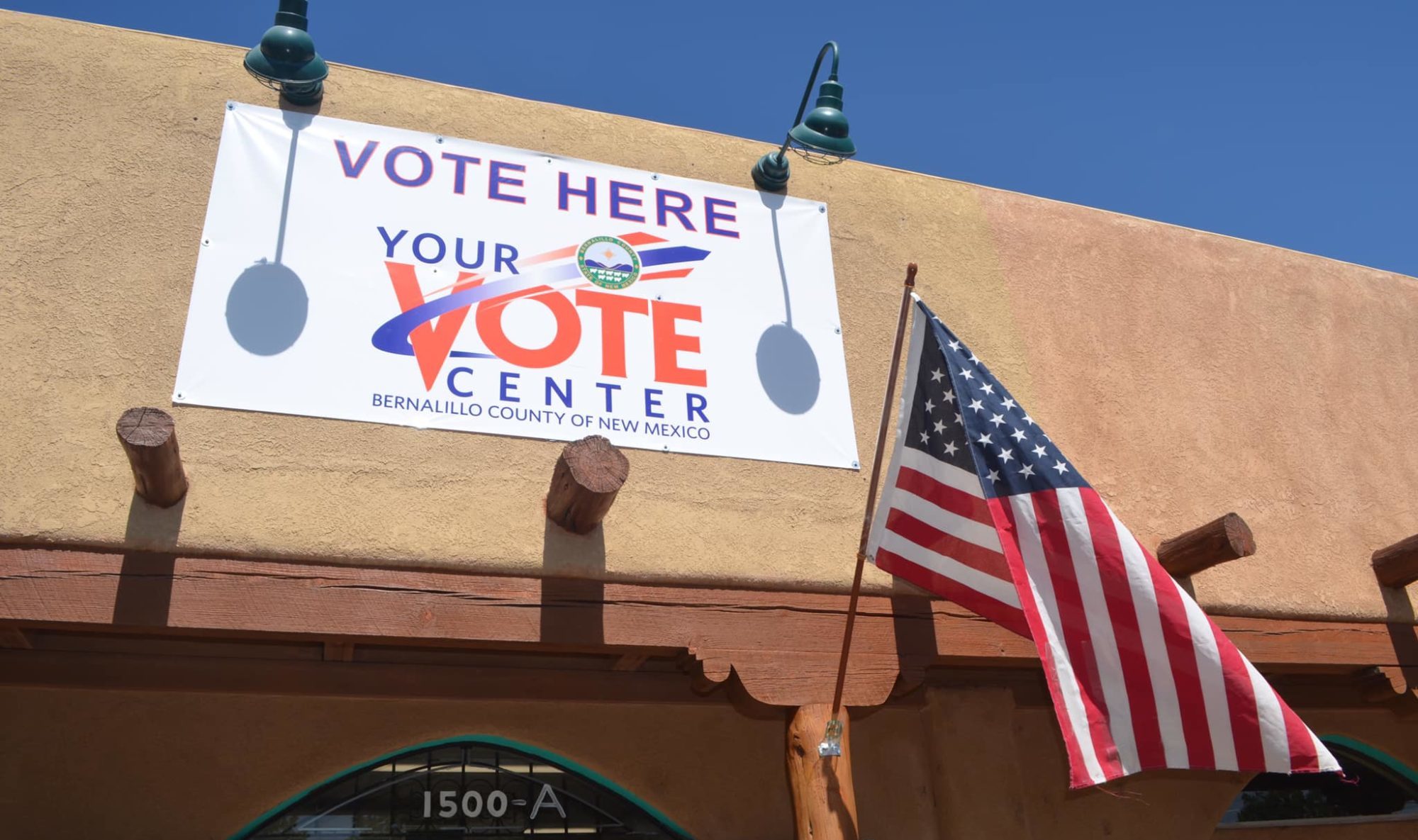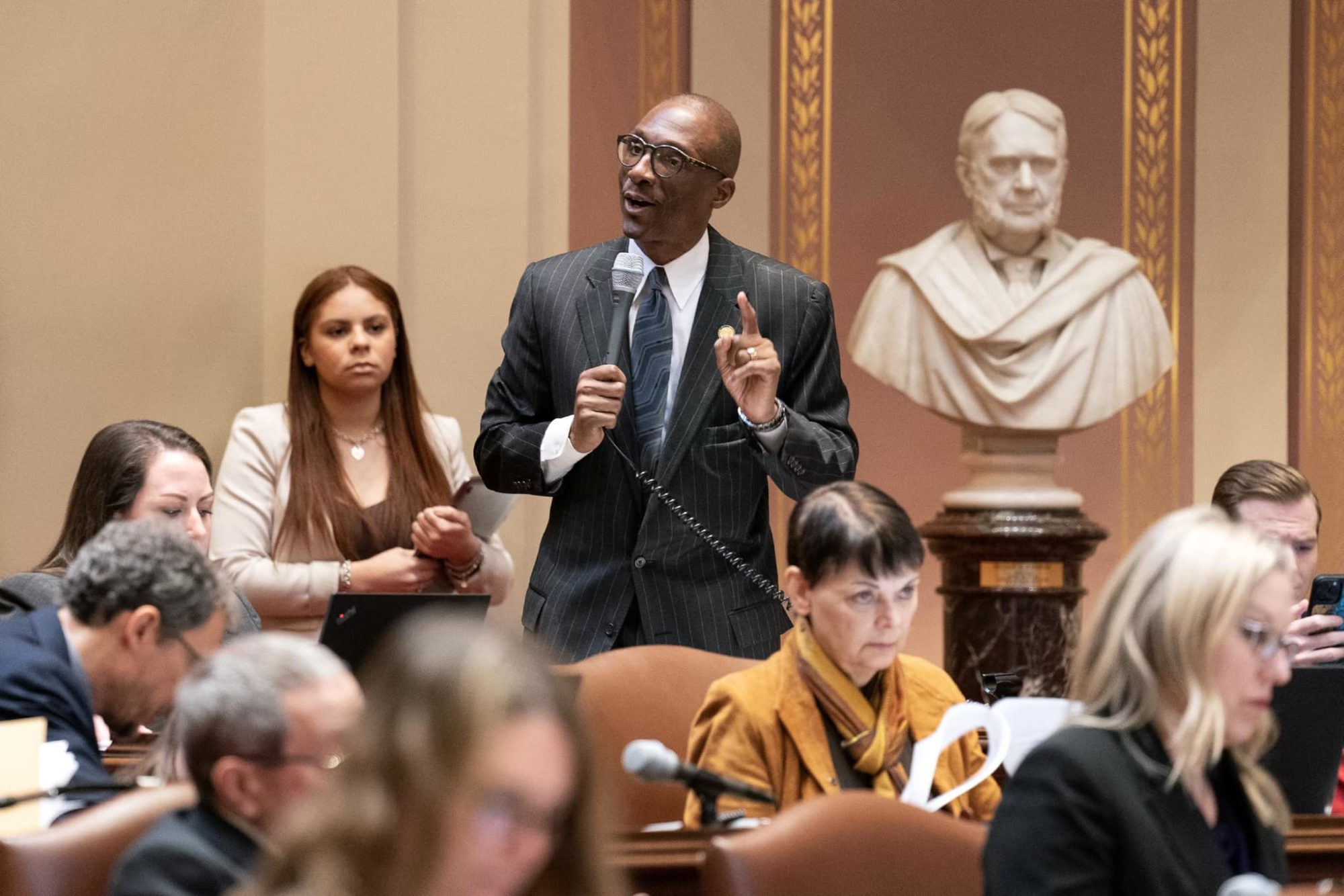The Virginians Who Can’t Vote Because of Glenn Youngkin
People leaving prison automatically regained the right to vote under the previous governor. But Youngkin ended that policy and now decides who gets to cast a ballot.
| June 16, 2023
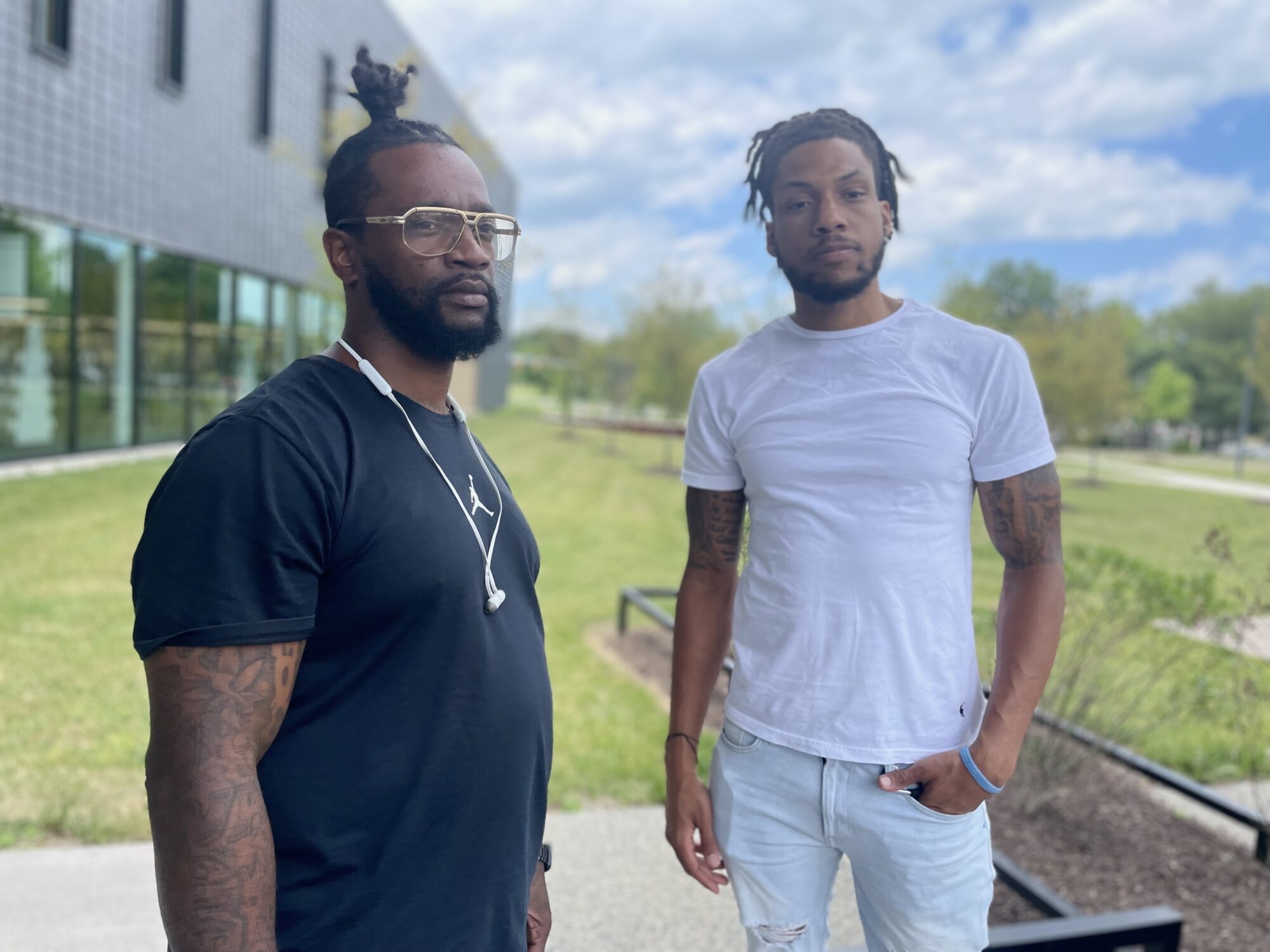
George Hawkins had a long to-do list when he left the Greensville Correctional Center on May 3, a free man for the first time in his adult life: stay out of trouble, find work, enroll in school, and relearn the streets of Richmond, which he hasn’t known since he was locked up at age 17.
And, crucially to him: register to vote.
Since his release last month, Hawkins, who spent 13 years in prison, has secured stable housing with his father, made money by painting houses and repairing cars, and started taking college courses in business administration. But he will not be able to vote in Virginia’s elections on Tuesday, barring a last-minute reprieve, due to a new policy Governor Glenn Youngkin announced in March.
Under Youngkin’s predecessor, Virginians automatically regained the right to vote upon leaving prison, an approach that would have made Hawkins eligible to vote. But Youngkin has revived the state’s lifetime ban on voting for people with felony convictions. Now Hawkins and the approximately 12,000 people released from Virginia prisons each year—a population in which Black people are massively overrepresented—must apply to the governor, who determines on an individual basis who deserves to regain their right to participate in the democratic process.
Hawkins has never voted, but says he dreamed of doing so while he was incarcerated. He applied for voting rights soon after leaving lockup, hoping he could participate in the June 20 primary elections. As that date approaches, he still isn’t sure where his application stands, or even how or where to ask for an update. Unless the governor deems him worthy of casting a ballot in the coming days, Hawkins will miss out on the first election since he was freed.
“It’s like I completed my sentence, but it’s not really complete,” Hawkins told Bolts this week. “I feel like I have to pay way beyond the 13 years I already did.”
Virginia is one of few states that give governors the power to decide whether people who have lost their voting rights can regain them. Previous Virginia governors prioritized voting rights restoration by standardizing and automating the process, leading to the re-enfranchisement of some 300,000 Virginians since 2013.
Republican Governor Bob McDonnell kicked this off a decade ago by restoring voting rights to about 8,000 people who’d completed sentences for nonviolent offenses. His successor, Democratic Governor Terry McAuliffe, dramatically expanded the process by announcing in 2016 that Virginia would automatically restore people’s voting rights—no application needed—when they completed their full sentence; about 170,000 Virginians regained their rights under McAuliffe. By the time the last governor, Democrat Ralph Northam, left office, the rules were simple: the state would restore the voting rights of anyone convicted of a felony upon their release from prison, whether or not they’d finished probation, parole, or any other post-release sentencing condition.
Youngkin, a Republican who came into office in early 2022, told lawmakers in March that he was reversing that approach. He said at the time he would assess applicants “on an individual basis according to the law and take into consideration the unique elements of each situation, practicing grace for those who need it and ensuring public safety for our community and families”—but he’s not said much else publicly since then, and his office did not respond to an request for comment for this story.
Now, Youngkin alone chooses which people with felony convictions get to vote, making Virginia’s policy on disenfranchisement uniquely harsh: it is the only state where someone who is convicted of any felony is presumed to be barred from voting for life.
Lawyers and voting rights advocates say Youngkin’s change has led to mass confusion about voting rights for formerly incarcerated Virgininans. People returning from prison say the policy makes them feel demoralized and even alienated from the rest of society.
Because he cannot vote, Hawkins said, he is dogged by his criminal record and unable to see himself as fully reintegrated in his community. “It’s second-class citizenship,” he said, “where you’re still an ‘ex-convict, an ‘ex-felon.’ It’s almost like it’s forever following you. That’s another form of incarceration.”
Voting rights advocates say Youngkin’s reversal caused major headaches for returning citizens. For one, they worry many people leaving prison simply won’t know how to apply to regain their voting rights to begin with.
Richmond Mayor Levar Stoney, who as the state’s former secretary of the commonwealth under McAuliffe helped build the now-shuttered program to automatically restore voting rights, said he’s also heard concerns from people who won back their voting rights before Youngkin was elected. Youngkin cannot, by law, strip voting rights from anyone who has already had them restored, but Stoney and voting rights advocates in the state told Bolts that Youngkin’s policy has spooked some people who already regained their right to vote under previous governors.
“There are voters—restored voters—who are afraid that maybe they may go to the polls, that maybe they may find out that [their] restoration is expired,” Stoney said. “They fear that could lead to a violation, a criminal offense.”
Officials in Florida and Tennessee have weaponized nebulous eligibility rules to arrest some people who mistakenly believed they could vote. There’s no evidence of any such enforcement in Virginia under Youngkin, but, Stoney said, “It certainly has sent a chill down the spines of many people.”
Virginia governors are limited to one term, so Youngkin, who is reportedly considering a 2024 run for president, will exit office no later than January of 2026. Stoney, the Democratic two-term mayor of Virginia’s capital, has all but confirmed he’ll run for governor in the state’s November 2025 election. He made clear to Bolts that he would, if elected, resume standardizing and automating the process for restoring voting rights.
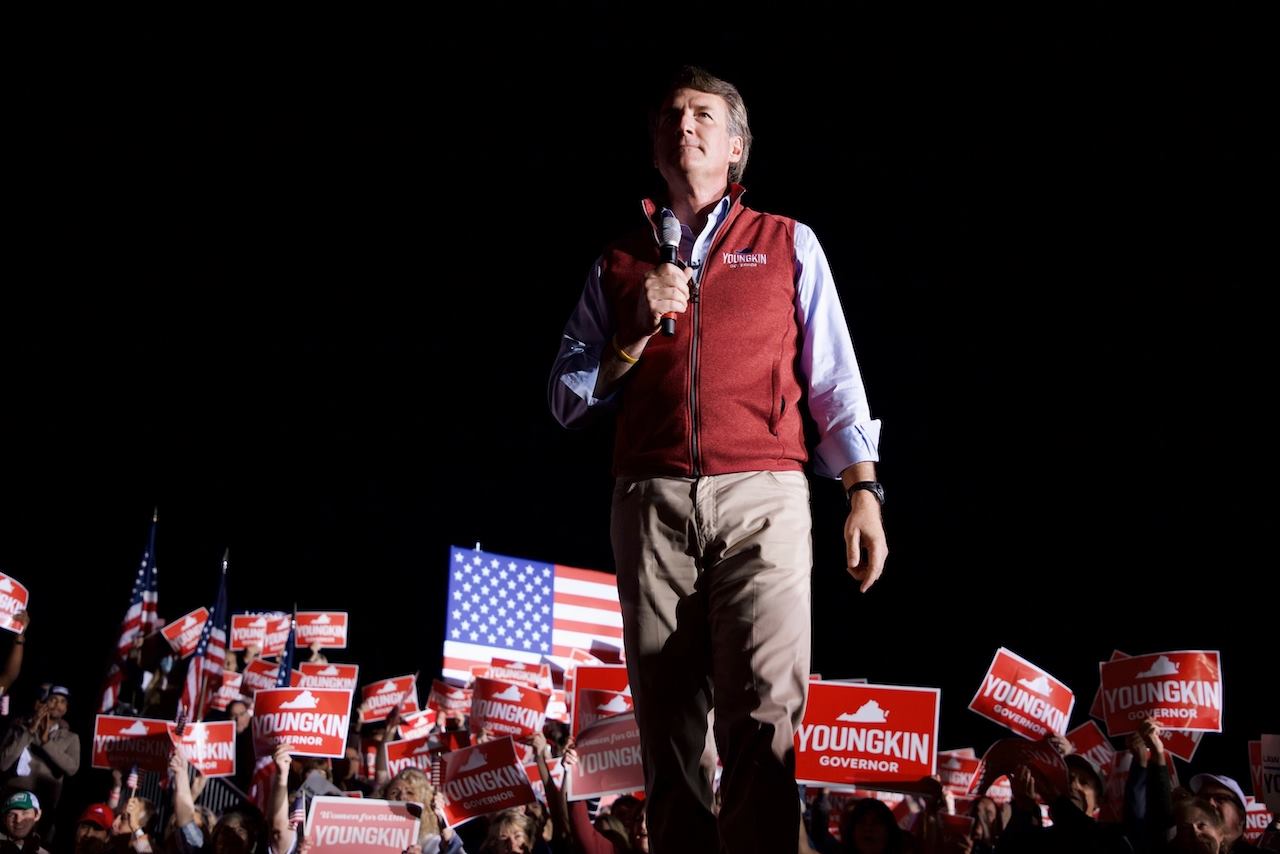
But Stoney says it’s inherently problematic for Virginia to place so much power in anyone’s hands, including his own. That’s why he and advocates across the state have broadly supported efforts to put a ballot measure to voters that would amend the state constitution by creating permanent, objective criteria for regaining voting rights, and stripping the power from the governor’s office.
“My fear is until we get that constitutional amendment, you’re going to see this yo-yo effect, going back and forth between Republican and Democratic governors,” Stoney said.
Under Virginia law, constitutional amendments must be approved by the legislature in two consecutive sessions, split by an election, before appearing on the ballot. An effort to amend the constitution to change the rights restoration process failed this session, and the next statehouse election after the coming one won’t be held for two years—meaning supporters can’t try again for a ballot measure until 2025, and wouldn’t be able to put one before voters until 2026 at the earliest.
In the meantime, Youngkin’s opponents are trying to find leverage. The governor faces a federal lawsuit from the Washington-based Fair Elections Center, which alleges Youngkin has acted unconstitutionally. Oral arguments in that case are set to begin next week, too late to help voters in Tuesday’s primaries. In the legislature, Democratic Senator Creigh Deeds has floated the idea of trading rights restorations for tax cuts that Youngkin seeks. Democrats control the state Senate, leaving them a critical check on a GOP that holds the governorship and the state House, though control of the legislature is at stake in the November elections.
“It’s just a matter of getting past these primaries next week before we can have serious conversations about it,” Deeds told Bolts. “The governor wants a billion dollars in tax cuts. We don’t want to give him a billion dollars. Is the cost we’re willing to pay for a billion dollars restoration of rights? I don’t know. I don’t know how everyone would feel.”
Senator Mamie Locke, Deeds’ Democratic colleague and a longtime voting rights advocate, said she thinks a constitutional amendment, far off as it may be in even the speediest scenario, remains the better route.
“I’m not interested in giving him any budget cuts,” she told Bolts. “A billion dollars in cuts is absolutely ludicrous, and I don’t think that we should be negotiating with him on what is an absolute right and not a privilege, exchanging voting rights for budget cuts.”
Locke and others have tried to “appeal to the governor’s heart” on this, she said, with no apparent success to this point. “You have to have a heart in order for someone to appeal to it,” Locke added.
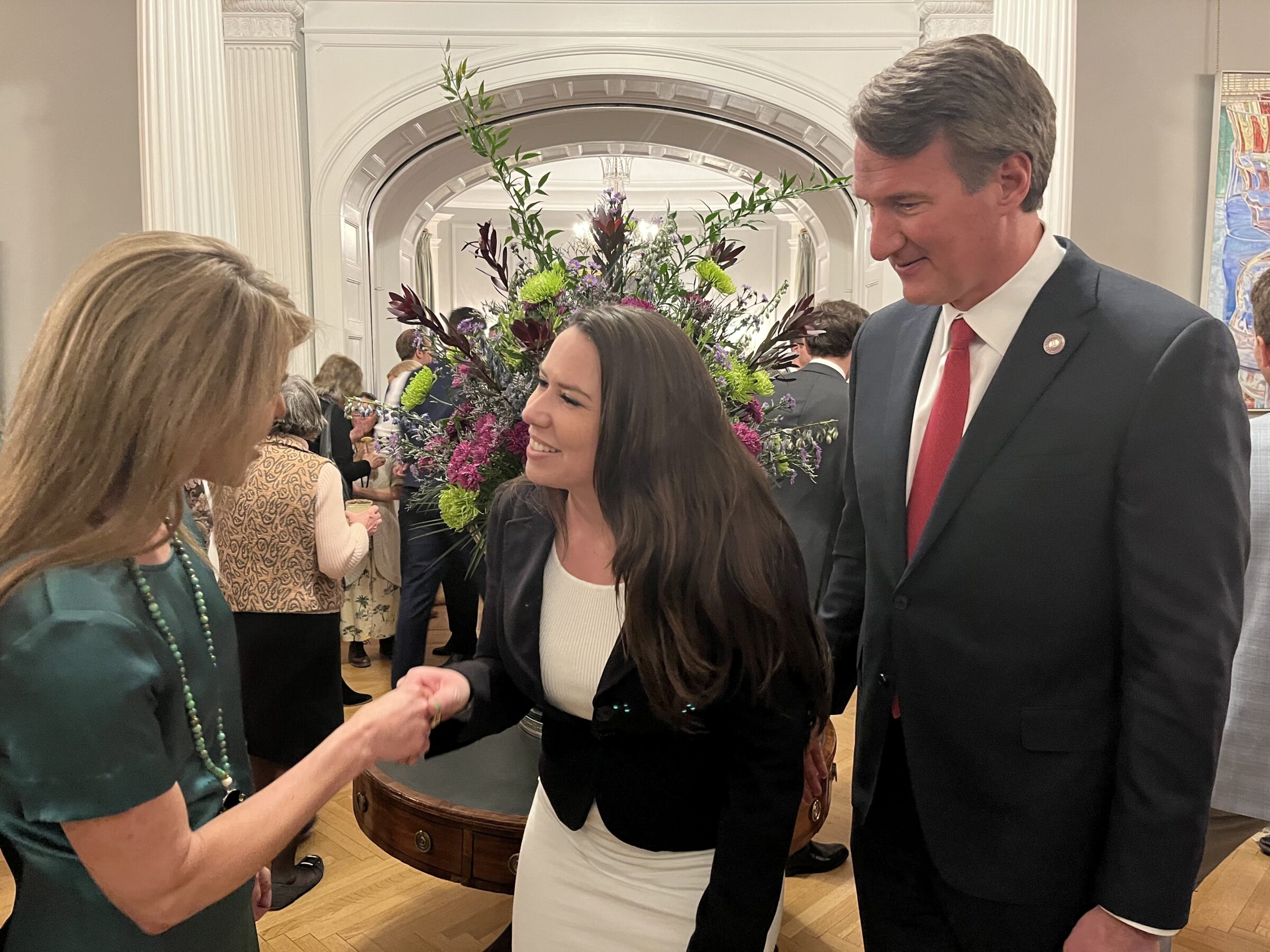
Blair Dacey, who was formerly incarcerated, says she has tried personally appealing to Youngkin to regain her voting rights. Upon release from prison in 2022, she secured a job as a legislative aide to Virginia state Senator Joe Morrissey, allowing her far greater access to power than most of the state’s disenfranchised population. At the governor’s mansion in February, she got to meet Youngkin face-to-face.
Dacey, who has never voted and applied for her voting rights after her release from prison, thought she had a good chance at winning him over. A white woman, she was sentenced as a teenager to prison for kicking and killing a man—accidentally, she says—while defending her friend. Northam pardoned her midway through a 20-year sentence, and her release, like her original case, garnered substantial local media attention.
When Dacey met Youngkin, she says, “he was really nice, really engaging—him and his wife, both.” She told him about herself and her work in government.
“He said, ‘That’s such a beautiful story,’” Dacey recalled. If this governor wants to evaluate disenfranchised applicants on a case-by-case basis, she thought, someone like her would seem a likely candidate.
But Dacey’s application is still pending. Unless Youngkin restores her rights in the next few days, she won’t get to vote for her boss, who faces a primary challenge on Tuesday.
“It makes me feel like it does not matter what I get out and do, or how many people I try to fight for. “If anybody would be more supportive of what’s going to help the community, it’s me. I’m putting forth the effort to show I’m trying to be the best and most positive example I can be.”
“But I can’t even show it, because I’m canceled out already,” Dacey said.
While Hawkins, Dacey, and others wait on their applications, which seem to be pending indefinitely, the governor’s reversal on voting rights has scared off others returning from prison from even trying to regain their rights.
Deshun Watkins, 34, who befriended George Hawkins at Greensville and who was also recently released, has heard Hawkins detail the murkiness of his own re-enfranchisement process, and the feeling of dejection with which he’s grappling. “It makes me not even want to waste my time,” Watkins said.
He voted once in his life, for former President Barack Obama, and he remembers feeling proud to have played a part in Obama winning Virginia. Watkins would like to vote again, especially now that he’s got kids for whom he wants to be a role model. “If I get back to voting, at least I’ll feel like a normal citizen,” he told Bolts. “I’d get to do something my friends who aren’t felons get to do.”
But he’s concluded that Youngkin would probably not grant his application, and so, he says, he won’t subject himself to judgment. “Why would I want to get smacked in the face?” he said. “Who wants to take punishment like that?”
Watkins added, “I got friends that are waiting to apply for anything until Youngkin gets out of office. They don’t even want to deal with him. Like with parole, I got a homeboy who’s got 10 years left, and he doesn’t want to even think about that. He goes up for parole every year, and he’s not even excited.” (In addition to curtailing voting rights, Youngkin has also taken steps to limit what were already narrow paths to release for people eligible for parole in Virginia.)
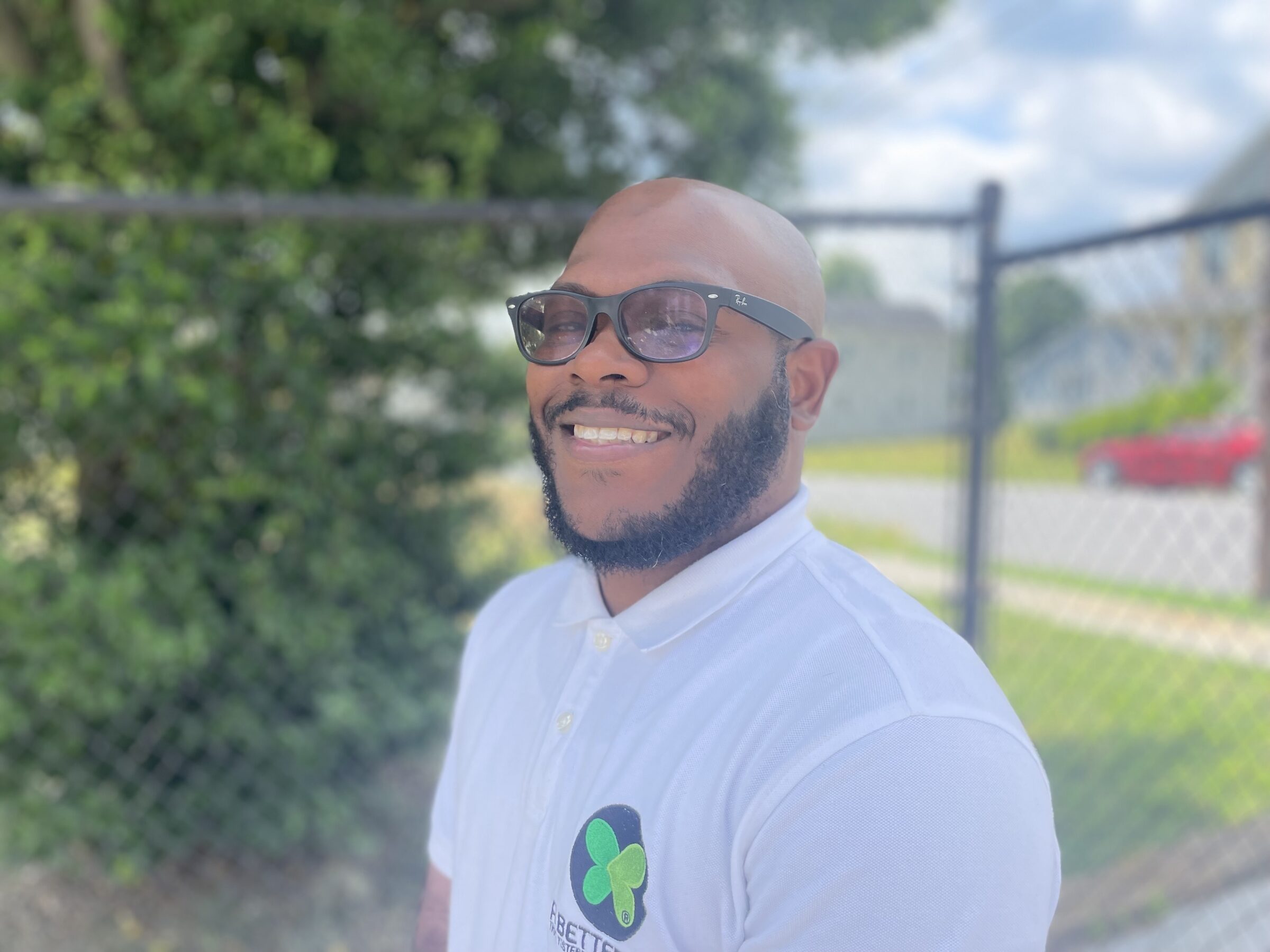
Like Watkins, Alonzo Bland Jr., who was released from prison about a year ago, says he doesn’t want to apply for restoration of voting rights. He’d rather not involve himself at all with the Youngkin administration, he told Bolts at a church in Richmond, and so he plans to wait until he gets off probation before he explores applying. “I want to make sure I have no discrepancies,” he said. “I don’t want anyone saying, ‘Yeah, but…’ and I’d rather have my things in order before I put my ten toes down.”
Bland, 31, pays attention to politics, and was a habitual voter before he was locked up for two and a half years. Inside prison, he says, he and peers paid attention to candidate debates and watched election-night returns on TV. Bland has a degree in criminal justice and keeps tabs on policy decisions in that space, especially as they pertain to living conditions for the incarcerated. It sickens him to feel judged by Youngkin for his criminal history, given his strong sense of self-worth and the many steps he’s taken to improve his station during and since his time in prison.
“I’m just as much of a citizen as he is,” Bland says. “My values, my opinions about government, are just as valuable as his. Because an individual makes a mistake doesn’t mean a God-given right should be taken away from you, and he shouldn’t be the judge and jury on whether I get it back.”
Sign up and stay up-to-date
Our weekly newsletter on the local politics of criminal justice and voting rights


